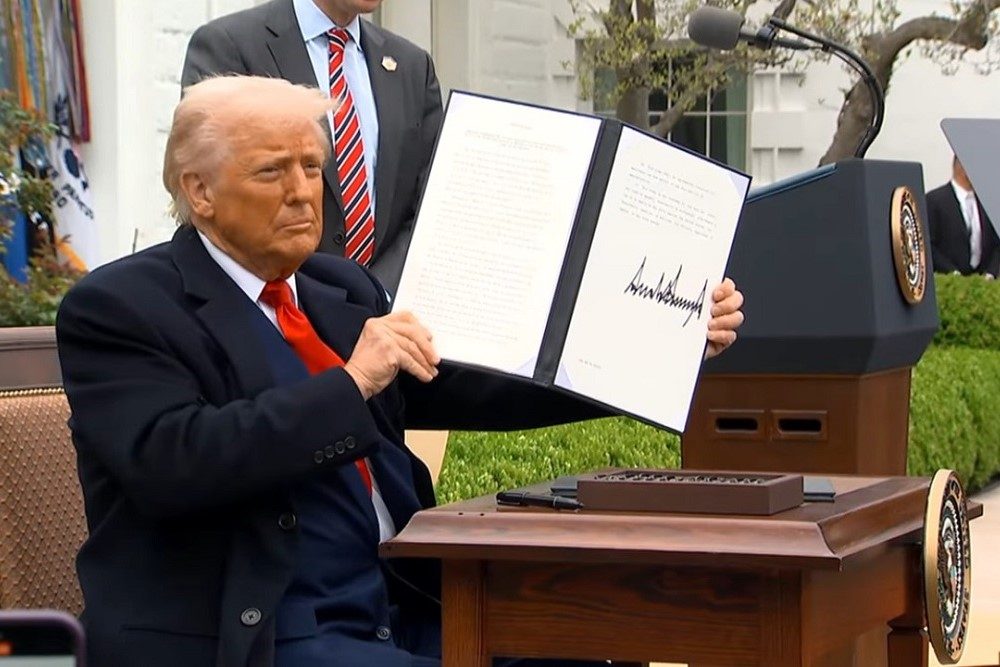The announcement of new trade tariffs has sparked widespread confusion and growing frustration in Switzerland, which now faces some of the steepest import duties among European nations. Businesses, economists, and government officials are trying to understand why a country known for its neutrality and economic cooperation is being hit so hard.
The tariffs, introduced as part of a broader trade policy shift, are already beginning to impact key sectors of the Swiss economy. For a nation that heavily relies on exports and maintains complex supply chains with neighboring countries, the sudden cost increase is more than an inconvenience—it threatens to affect jobs, prices, and investment confidence.
Switzerland is not part of the European Union but maintains close trade ties with it. That makes this situation particularly challenging. The country must now navigate a policy landscape that treats it as both independent and, paradoxically, penalized. This unclear position has fueled frustration among Swiss exporters, many of whom are now scrambling to recalculate pricing and delivery schedules.
Industries expected to be affected initially encompass machinery, pharmaceuticals, luxury items, and high-tech production—all crucial elements of the Swiss economy. These industries depend on stable trade environments and rapid global logistics. The newly imposed tariffs might delay deliveries, increase expenses, and render Swiss-manufactured goods less competitive in key markets, particularly the United States.
Small and medium-sized enterprises (SMEs) in Switzerland are especially vulnerable. Unlike large multinational corporations, these businesses often lack the financial buffers or global reach to offset sudden increases in operating costs. For many of them, even a modest shift in tariff rates can cause a significant drop in profit margins.
The uncertainty goes beyond just the corporate sphere. Swiss policymakers and trade officials have voiced their worries regarding the unclear reasons and methods behind the imposition of these tariffs. There seems to be minimal justification for why Switzerland, known for its excellent trade relations, was targeted with higher import taxes than its neighboring nations.
The absence of openness has prompted conjecture. Several analysts think the tariffs could be an effort to reorganize international supply networks, promoting increased local production in nations implementing these duties. Alternatively, some propose that Switzerland’s financial industry and its focus on maintaining solid currency policies might have influenced its choice.
It’s evident that the Swiss government is addressing the matter with urgency. Authorities are engaged in discussions with officials from significant partner nations to obtain explanations and potential waivers. Additionally, there is a conversation about contesting the tariffs through suitable global trade channels. Nevertheless, these procedures are time-consuming, and companies are looking for more prompt solutions.
Consumer prices could also be affected. If companies facing tariffs decide to pass costs on to buyers, everything from household electronics to medical supplies could become more expensive. In a country where the cost of living is already high, this possibility is causing concern among consumers and advocacy groups.
Stores and importers are keeping an eye on the situation with vigilance. A few are considering changing their suppliers or modifying their product offerings to steer clear of the most impacted items. Nevertheless, these changes can be challenging, especially when it comes to maintaining quality standards or existing relationships with vendors that have been in place for a long time.
Meanwhile, some Swiss companies are considering whether to shift parts of their operations to countries with more favorable trade conditions. While this would be a long-term decision, it reflects the seriousness of the moment. For some firms, the cost of staying in Switzerland may no longer justify the risk of continued tariff pressure.
The finance industry is also observing. Experts in the market acknowledge that although the Swiss franc retains its strength, ongoing economic stress might result in changes to predictions and investor outlook. Trust plays a crucial role in Switzerland’s economy, and continued ambiguity could encourage investors to consider other options.
International responses to the tariffs imposed on Switzerland have been varied. Some nations are concentrating on their own tariff discussions, while others are quietly worried that a nation such as Switzerland—typically considered an example of open and stable commerce—might be so aggressively targeted. This situation brings up questions regarding the future of global trade standards and the dependability of established economic partnerships.
Some experts argue that this situation could mark a turning point for how Switzerland engages in global trade. It may lead the country to strengthen existing partnerships or forge new ones with nations less inclined to use tariffs as a policy tool. Alternatively, Switzerland could double down on innovation and high-value exports that are less sensitive to price fluctuations.
Within the nation, there is also a conversation about enhancing autonomy in specific industries. Although Switzerland has historically celebrated its excellence in meticulous manufacturing, the growing international trade uncertainties might compel the nation to reconsider its reliance on any particular market, particularly since policy changes can occur unexpectedly.
In the weeks ahead, all eyes will be on how the Swiss government responds and whether negotiations will lead to any relaxation or adjustment of the tariff regime. For now, however, the prevailing sentiment is one of unease.
Switzerland is known for its ability to adapt and navigate complex economic terrain. But with limited information and a lack of clear direction from those imposing the tariffs, businesses are being forced to make decisions in a climate of uncertainty.
As events develop, industries, consumers, and decision-makers in Switzerland must remain vigilant. The forthcoming actions may shape not only immediate market outcomes but also the nation’s future role in the shifting global trade landscape.




